
Crime & Justice
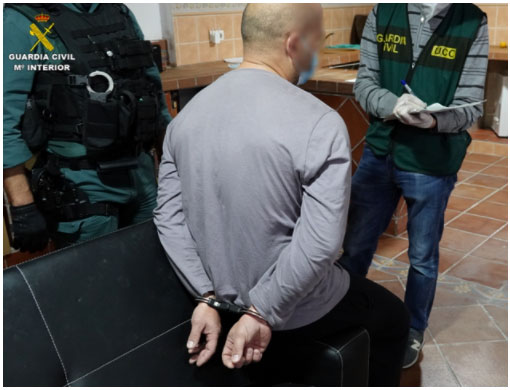
- Details
- Category: Crime & Justice
-
Also available:

- Málaga / Marbella
Guardia Civil has detained 14 members of a well-known and dangerous criminal gang. The dismantled criminal organization was based mainly in the La Palmilla neighbourhood of Málaga, and its main distribution channels were centred in Marbella, through a Spanish businessman linked for years to drug trafficking, who has distributed drugs throughout almost all the Andalusian provinces and Madrid.
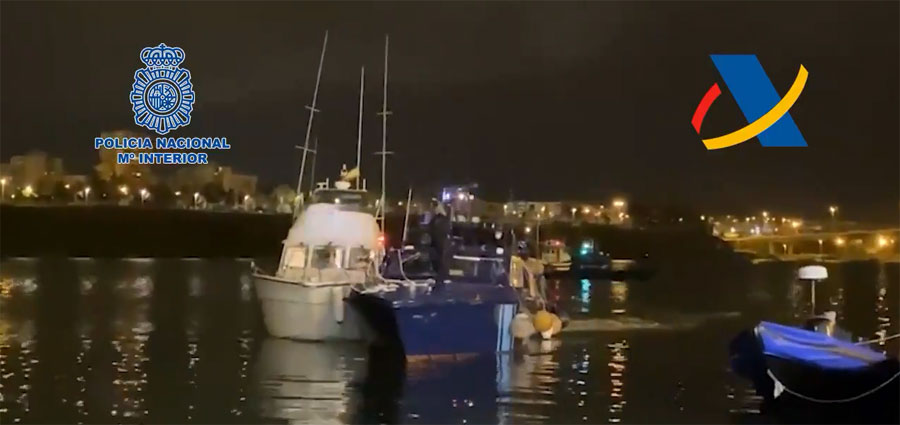
- Details
- Category: Crime & Justice
-
Also available:

- Andalucía
Policía Nacional y Vigilancia Aduanera de la Agencia Tributaria, in collaboration with the National Crime Agency (NCA) in UK, have dismantled a criminal organization led by a historic British drug trafficker and have intervened more than one and a half ton of hashish.
A total of ten people have been detained in the autonomous city of Ceuta and in the provinces of Cádiz and Málaga.
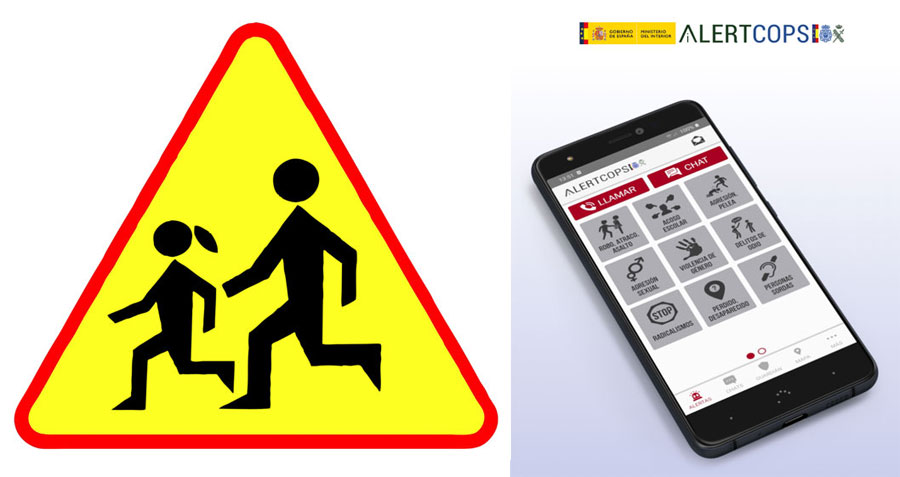
- Details
- Category: Crime & Justice
-
Also available:

- Estepona
The 34-year-old man has been using a multitude of false profiles on Internet in which he pretended to be younger and, in this way, gain the trust of his victims. The minor reported the sexual assault through the AlertCops application.
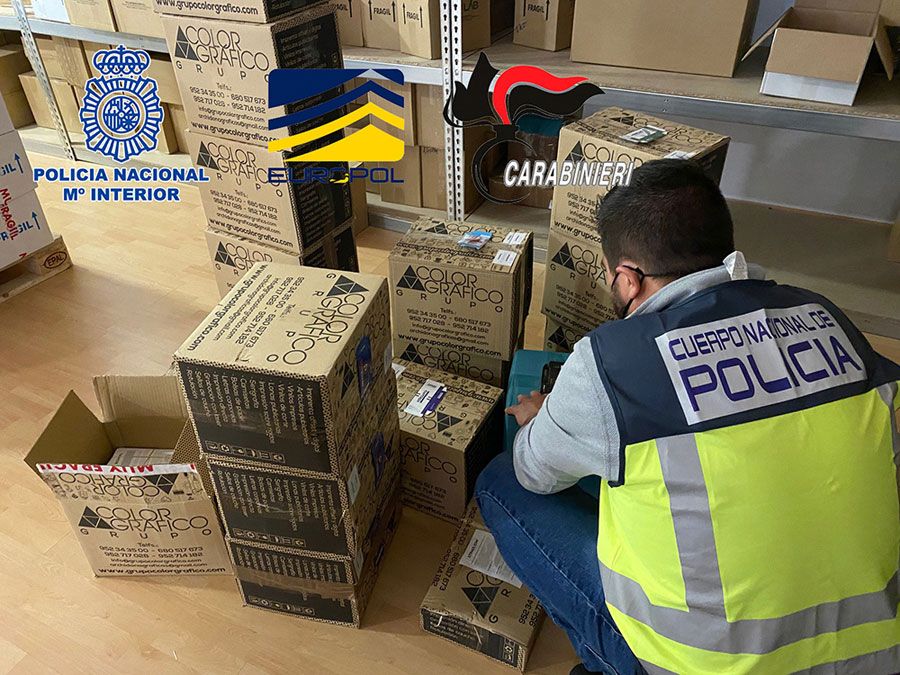
- Details
- Category: Crime & Justice
-
Also available:

- Málaga
Policía Nacional has participated in dismantling a criminal organization allegedly dedicated to the trafficking of medicinal substances that they masked as nutritional products in a joint operation with the Carabinieri of Italy and the Romanian Police that has been coordinated by EUROPOL.

- Details
- Category: Crime & Justice
Europol has today published six images – a t-shirt, a wristband, a bag – that they want as many people to look at as possible. The investigators have exhausted all the investigative leads and is turning to the public for further information.
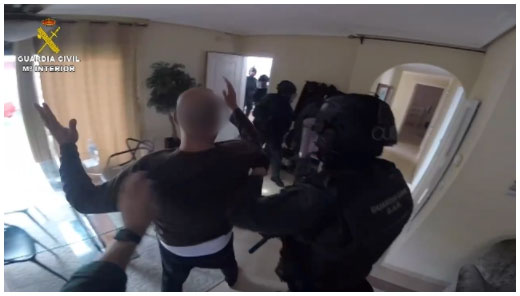
- Details
- Category: Crime & Justice
-
Also available:

- Andalucía
Guardia Civil has detained 8 people whom are members of one of the most important and active criminal organizations dedicated to trafficking large quantity of hashish from Morocco to Spain. Among those arrested is a Spanish citizen of Moroccan origin (MLM) considered one of the most prominent drug traffickers operating between Morocco and the Andalusian coasts and another Italian (PV) who is wanted by the Italian authorities for his membership in the Camorra Napolitana, with several pending legal cases in Italy mainly for drug trafficking and "mafia-type association".
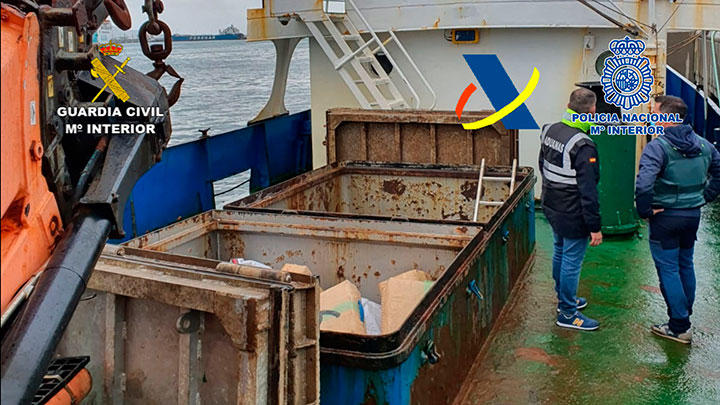
- Details
- Category: Crime & Justice
-
Also available:

- Andalucía
More than seven tons of hashish, carried by a tugboat, has been seized in a new hit against the international drug trafficking in Campo de Gibraltar. It was carried out in a joint operation between Polcía Nacional, Guardia Civil and the Tax Agency (Agencia Tributaria). Three people were detained.
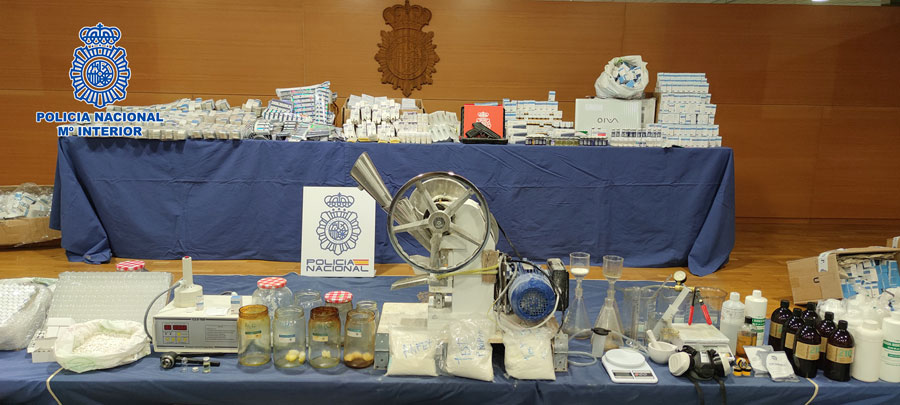
- Details
- Category: Crime & Justice
-
Also available:

The dismantled organization was "multi-crime" by combining drug trafficking with the manufacture, storage and distribution of illegal medicines through cells distributed throughout Spain, in addition to preparing "potions" or "combos" mixing illegal drugs for direct injection.
The operation has been carried out in permanent contact with the AEPSAD (Agencia Española de Protección de la Salud en el Deporte) who has provided vital information and advice for the successful completion of the investigation.
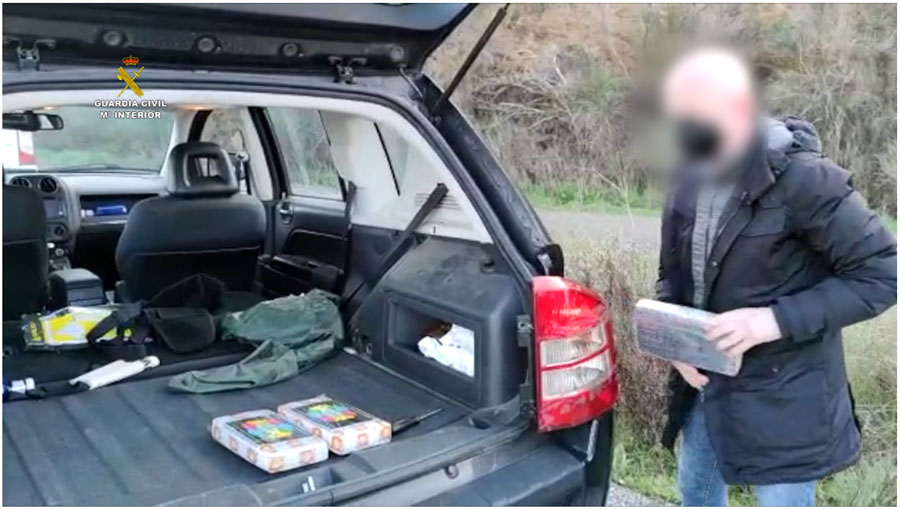
- Details
- Category: Crime & Justice
-
Also available:

- Andalucía
Guardia Civil has completely dismantled a criminal organization dedicated mainly to trafficking cocaine in secret compartments in vehicles. In total, 20 people have been detained and 17 home searches have been carried out in the towns of Málaga, Córdoba, Torremolinos and Estepona. 21 kilograms of cocaine, 30 kilograms of hashish and 1,029,000 euros in cash have been intervened in the operation, among other effects.
- A criminal organization dedicated to trafficking large quantity of hashish from Morocco has been dismantled
- Assassination attempt between drug-trafficking gangs
- A criminal network trafficking people through the Straight of Gibraltar has been dismantled
- A cocaine trafficking organization has been dismantled
- First semi-submersible vessel in Spain for drug trafficking
- One of the main hashish trafficking organizations has been dismantled
- A huge number of drug-traffickers have been detained
- Drug trafficking network dismantled in the province of Málaga
- Detention of the leader of a French drug trafficking organization
- The most active marijuana trafficking organization in Europe has been dismantled
- Police has searched the office of the mayor's husband
- Policía Nacional has detained a huge amount of people and dismantle a vast number of marijuana plantations
Information
The Defensor del Pueblo is the High Commissioner of Parliament responsible for defending citizens’ fundamental rights and civil liberties by monitoring the activity of the Administration and public authorities. Any citizen may request the intervention of the Defensor del Pueblo, which is free of charge, to investigate any alleged misconduct by public authorities and/or the agents thereof. The office of the Defensor del Pueblo can also intervene ex officio in cases that come to their attention without any complaint having been filed.
The European Ombudsman is an independent and impartial body that holds the EU’s institutions and agencies to account, and promotes good administration. The Ombudsman helps people, businesses, and organisations facing problems with the EU’s administration by investigating complaints about maladministration by EU institutions and bodies, as well as by proactively looking into broader systemic issues.
